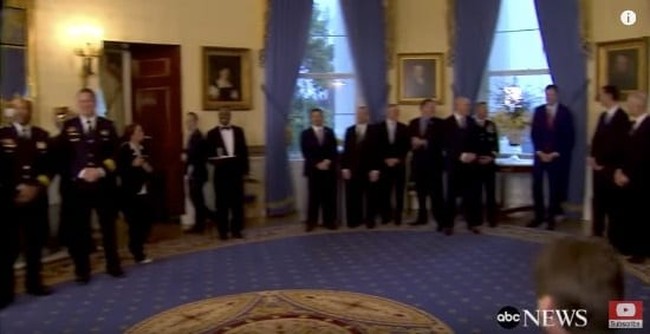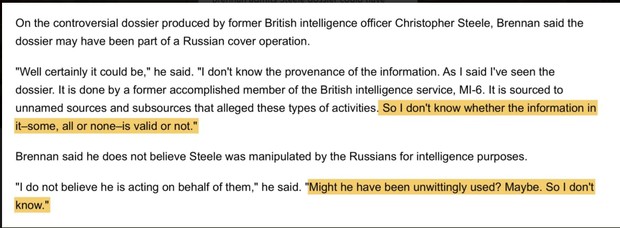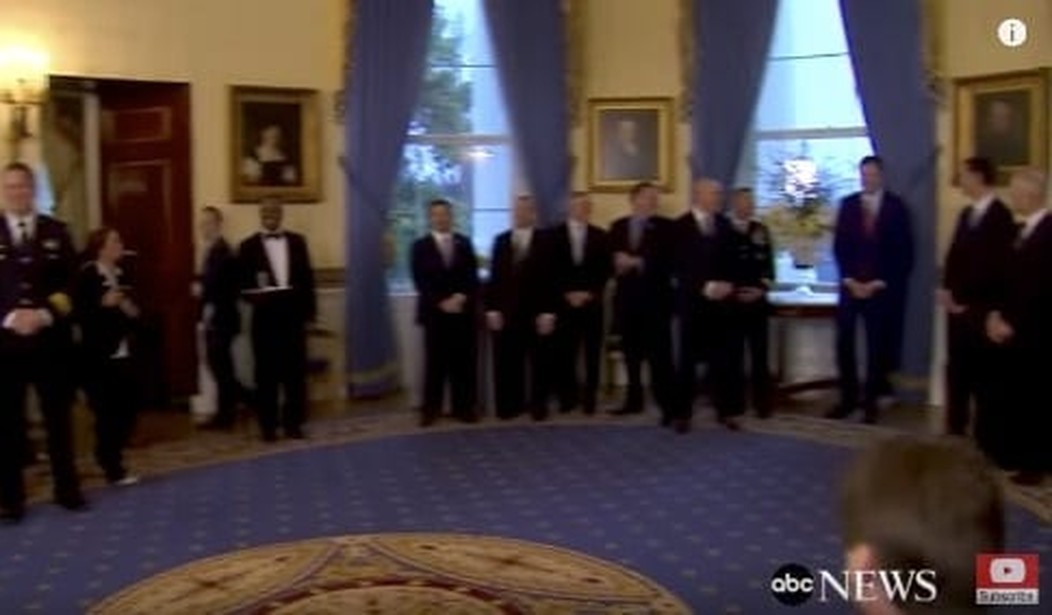
The long-secret Comey memos made their appearance yesterday. I’m shocked that this collection of banalities was worthy of protection from public disclosure under FOIA. And if the people claiming that these documents were essential to the special counsel investigation are correct, we need to fire Mueller right now and finish off the rest of DOJ’s top leadership after a three-martini lunch.
But there was an interesting data point that has some interesting implications. That point is the decision by then-FBI director James Comey to brief Donald Trump on the dossier compiled by former British spy, Christopher Steele, while working under contract with oppo research firm FusionGPS who was being paid, via a cut-out, by the Clinton campaign.
Pause and consider this before continuing:

The background is that Steele and FusionGPS had been pushing this dossier for months. Around July 5, 2016, at least two weeks before the stories of the critical George Papadopoulos drinking bout reached the ears of US intelligence, Christopher Steele briefed the head of the FBI’s Rome station (he knew him from the work Steele had done on the FIFA investigation) on the dossier. In September, media began to start carrying bits and pieces of the dossier. By Election Day, the dossier had wide distribution. In early December, John McCain got his very own copy and had it sent to the FBI.
Then came the meeting with Trump.

There are a couple of operative statements here. First, “I said there was something that Clapper wanted me to speak to the PE [president-elect] about alone or in a very small group.” And “I then executed the session exactly as I had planned.”
Comey briefs Trump on only part of the dossier:
I did not know this fact that @jaketapper got Comey to reveal: When Comey briefed President-elect Trump on dossier, Comey discussed *only* the sex stuff, not other allegations (Manafort, Cohen, etc) that were also in dossier. https://t.co/YSXW8JpQnH pic.twitter.com/iAGUg7a4Vi
— Byron York (@ByronYork) April 20, 2018
Tapper wonders why they haven’t run the story, and Comey helps him out.

This is correct. Currently, BuzzFeed is in a legal battle that could see it go the way of Gawker over publishing the dossier. Fusion GPS is in legal trouble in Britain for its role in libeling people in the preparation of the dossier. What Comey is saying is that the media want to run the story but they need a reason. What was the reason used to get the dossier into play:
CNN–Intel chiefs presented Trump with claims of Russian efforts to compromise him
The news hook was that Trump had been briefed.
https://twitter.com/seanmdav/status/987299889842356229
Memo: Comey briefed Trump on dossier because CNN was "about to run with it" and was looking for a "news hook."
-That very same briefing served as the "news hook."
-BuzzFeed used that news hook as a news hook to publish dossier. https://t.co/BKoStjaQjd @dailycaller— Chuck Ross (@ChuckRossDC) April 20, 2018
This looks like Comey was either played by Clapper, who suggested the meeting, or was complicit in creating a “news hook” for CNN and other outlets. The coincidence of the dossier being discussed, when Trump did not know about it, and the leak of the briefing is too much to overlook.
The big question I’m left with on this is why Comey chose only to brief Trump on the “salacious” parts? Two thoughts come to mind. Note that COS [chief of staff, i.e. Reince Priebus] asked if there was anything they should know about. Logically, all the Russia related stuff in the dossier fits into that category. To me, this indicates that Comey wanted the publication of the dossier to cause confusion. He had them looking at Russian hookers and hit them with his staff being Russian assets. Second, Comey wanted to take a shot at Trump. It isn’t any secret that Comey’s family were outspoken Hillary Clinton supporters. It is pretty obvious that Comey never had any respect for Trump (I understand that sentiment). Bringing up hookers and the like is the best way to take a passive-aggressive swipe at the guy.
If means, motive, and opportunity are required to explain an act, then we have all three here.
(h/t to Mollie Hemingway at The Federalist for pulling together all the data points on this.)














Join the conversation as a VIP Member